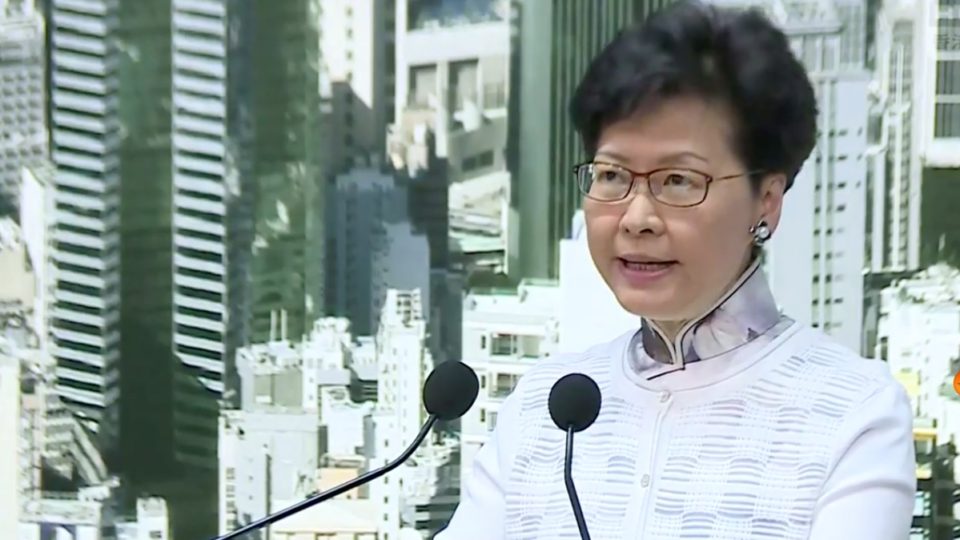Hong Kong Chief Executive Carrie Lam announced today that the government would be suspending its work on a controversial extradition bill, finally caving in the face of massive demonstrations and overwhelming pressure from seemingly all corners.
In a press conference this afternoon, Lam described the murder case in Taiwan that first gave rise to the deeply divisive bill, which she maintained was intended to “address deficiencies in our system.” However, given Taiwan’s repeated protestations that it would not seek the suspect’s extradition if the bill was passed, Lam acknowledged that “the original urgency to pass the bill in this legislative year is no longer there.”
“I now announce that the government has decided to suspend the the legislative amendment exercise,” she said, adding that the “government is adopting an open mind” to hear differing points of view on the bill. “In other words, the council will halt its work on the bill until our work on communication, explanation, and hearing opinions is completed.”
Lam stopped short of saying the government would abandon the legislation altogether, as most opponents have demanded, but the “pause,” as Lam described it, would nonetheless qualify as at least a partial victory for the bill’s critics.
Despite the pro-Beijing government’s repeated insistence that the bill was intended to bring justice in the Taiwan case, the amendments to the bill would have also allowed, for the first time in decades, extradition to mainland China, which is currently prohibited under the law.
The bill stirred deep fears that Hongkongers and foreign residents alike could find themselves unfairly ensnared in China’s opaque and notoriously politicized courts, not only among pro-democracy activists, but also businesspeople, lawyers, judges, students, teachers, clergy, former colonial administrators, and foreign governments.
Lam said today that Beijing had been informed of the decision to suspend the bill, and said they had been “supportive and respectful” of it.
Meanwhile, the bill has proven so unpopular that it has prompted sustained calls for Lam to step down, something she today said she has no intention of doing.
Those fears prompted some of the largest protests Hong Kong has seen since the handover, including an unruly one on Wednesday that descended into outright chaos and brought parts of Hong Kong to a standstill. As of press time, another march against the bill scheduled for tomorrow and a second citywide strike set for Monday appear to be going forward as planned.




